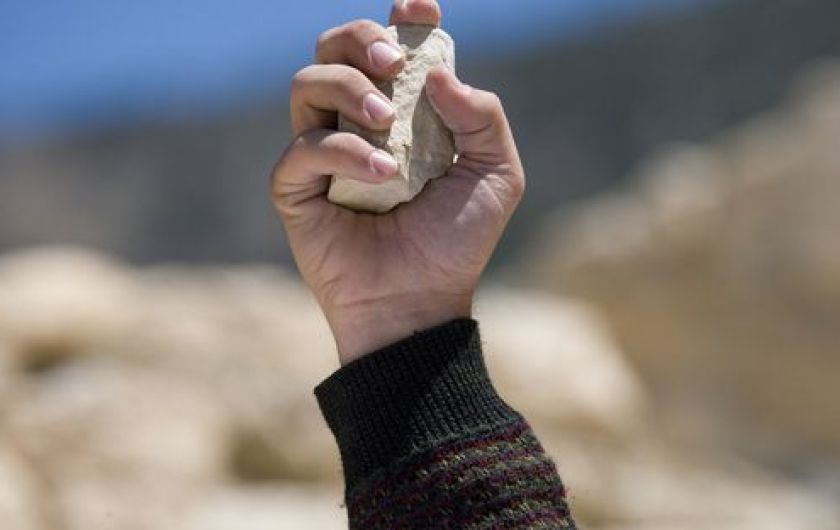
To listen to this reflection as a podcast, click here.
Standing Where Jesus Stands
There once was a florist who had a really bad day.
He mixed up two orders. One flower arrangement went to a guy who was opening a new business. The other went to a family that had just lost a loved one.
The business owner came into the floral shop fuming. “Here it is, my opening day, and you send flowers that say, Rest in peace.” The florist answered, “You think you’re mad? You should have seen the people who just left. A bouquet was delivered to their family’s funeral that said, Good luck in your new location.”
It’s important to avoid serious mix-ups.
That includes how we identify with the key players in various Bible stories. Such stories beckon us to place ourselves somewhere in the picture.
So who are you in the first 11 verses of the eighth chapter of John?
Do you identify with the woman brought before Jesus – someone who is beginning to hope against hope that you can actually survive a calamitous personal situation, and that your life isn’t over?
Or are you someone who picks up a rock every time you think about your business partner who deceived you…or the building contractor who ripped you off…or the lover who betrayed you…or your parents who mocked you…or that monster who stole your sexual innocence?
As you imagine this story, are you willing to come over to Jesus’ side – to stand where he stands and see what he sees?
Some of us cannot fathom asking for God’s grace to change our hearts, so that we might forgive those who have hurt us. But a wonderful thing happens when we put down our rocks – when we surrender our claims to get even. We ourselves are healed of wounds we don’t even know we are carrying around.
Jesus urges us not to get mixed up. None of us is called to join the Morality Police.
All of us are called, however, to recognize how much we personally need his gift of absolute grace – and to recognize that that doesn’t mean God has rescinded his call to absolute holiness. The drama of being lifelong learners of Jesus is to discover, in every new situation, how Jesus’ Third Way can help broken people experience restoration. And how we ourselves can help make that happen.
Author Jim Wallis remembers the time that his father, who was the chief elder in his church, was called to an emergency meeting. Two teenagers had crossed the line sexually. Now the girl was pregnant. What should the congregation’s spiritual leaders do?
Most of them declared, “Bring these two up before the whole church, and we will denounce their behavior.” Wallis’ father objected to such a harsh strategy. Why would such a thing be necessary? People need to know where we stand, the elders declared. Do you think anybody doesn’t know where we stand? Wallis answered. But these two need to know how wrong this was, said another elder. Does anyone here doubt that these kids know they’ve made a major mistake and are now in a major mess?
Because a majority of the elders continued to insist on a public rebuke, Wallis finally consented. His colleagues were surprised that he gave in.
Sure, he said. “Let’s bring them up in front of the whole church and declare their sins before everyone. Then let’s bring everyone else up, too, one at a time, and declare all our sins. And since I’ve done so much counseling with so many of you and the families of the church, I’ll make sure nothing gets left out.”
Jim Wallis writes, “At that point, the plans for confronting the young couple were dropped, and a discussion followed about how to support them in their perilous situation.”
Guided by the humility that comes from knowing that all of us stand before a holy God only because of his grace, we can be part of a new kind of community.
We won’t get mixed up if we let him turn hearts of stone into hearts that beat with his.
